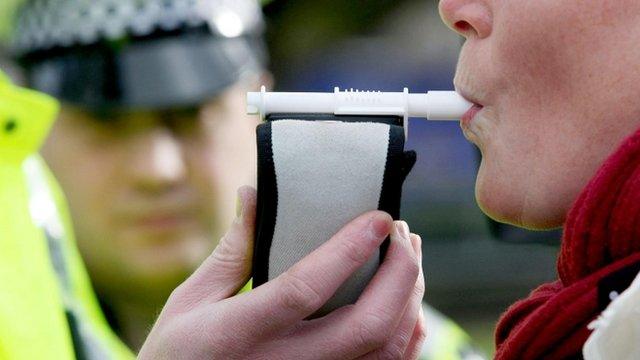Drink-driving: Doctors' alliance calls for cut to limit
- Published
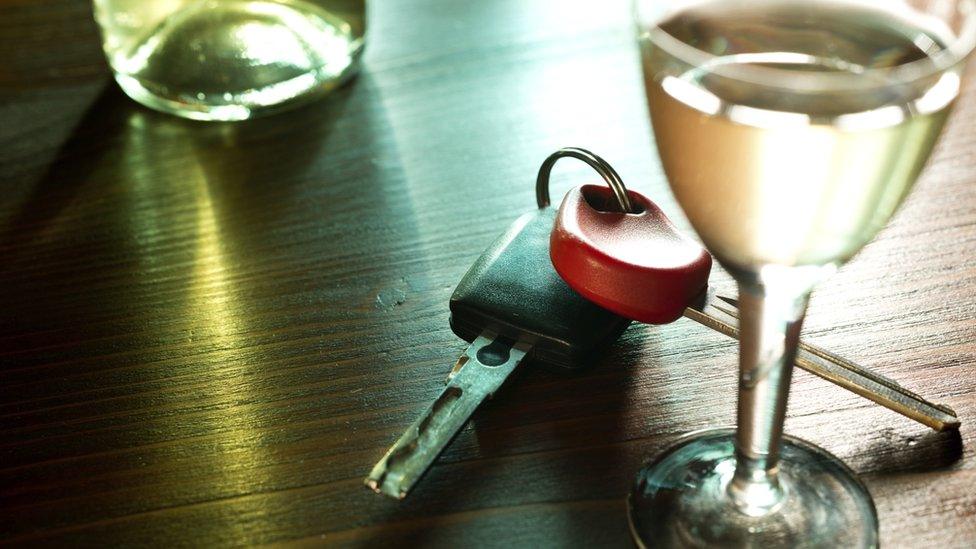
A private member's bill proposes lowering the drink drive limit to match Scotland's lower limit
A group of doctors and health experts is urging the House of Lords to support a bill to lower the drink-driving limit across the whole of the UK.
They want England, Wales and Northern Ireland brought in line with Scotland.
The bill proposes amending the 1988 Road Traffic Act to lower the blood-alcohol concentration limit from 80mg alcohol per 100ml of blood to 50mg.
The government said the current limit struck a balance between safety and personal freedom.
The bill, which will be debated in the Lords on Friday, also proposes lowering the limits for alcohol in breath and urine when driving a vehicle.
Because everyone has a different susceptibility to alcohol, health experts say it is difficult to quantify exactly how many units can be drunk before reaching the proposed new limit.
For the average man, it would be just under a pint of beer or a large glass of wine and for women, half a pint of beer or a small glass of wine.
Accident risk
In a letter to the Times, the Alcohol Health Alliance said the move would save lives and improve road safety.
The alliance, which is made up of organisations including the Royal College of Physicians, the British Medical Association and Alcohol Concern, said that at the current limit, drivers are six times more likely to die in a road traffic accident than those who have not drunk any alcohol.
It said a vote in favour of the bill would signal to the government that "now is the time time to lower the drink-driving limit".
Scotland lowered its drink-driving limit to the proposed new level in December 2014 and police figures show that drink-drive offences there fell by 17% in the first three months of 2015.
Northern Ireland is currently consulting on whether to lower its limit.
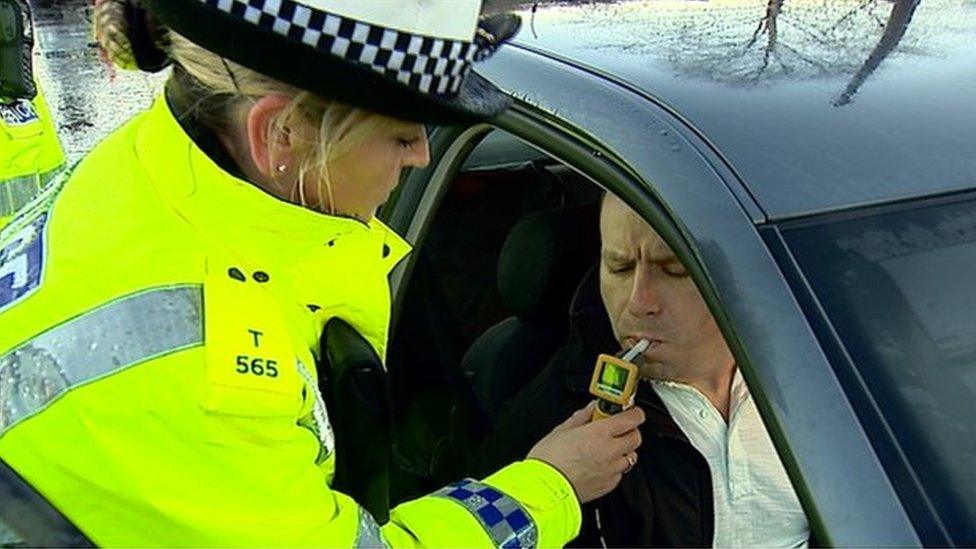
Drink driving limits were lowered in Scotland in 2014
At present, England, Wales and Northern Ireland have one of the highest drink-driving limits in Europe.
The World Health Organization recommends a limit of 50mg/100ml.
Prof Sir Ian Gilmore, chair of the Alcohol Health Alliance and honorary professor in clinical science at the University of Liverpool, said the overriding reason for lowering the limit was that "several hundreds of lives could be saved in England each year".
And he said the scientific evidence for the change was strong.
Driving deterioration
"There is a wealth of published, peer-reviewed, high quality research on the impact of alcohol on psychomotor skills and judgement.
"While even low levels have an effect on these critical functions, the deterioration in performance moving from a blood level of 50 to 80mg per 100ml are striking."
Prof Gilmore said there was public support for a lowering of the legal drink-drive limit at a time when drink-driving appears to be on the rise.
The Local Government Association recently estimated that lowering the current limit would also save nearly £300m a year by reducing police and ambulance call-outs and hospital admissions.
Personal freedom
A spokesman for the Department for Transport said: "The drink-driving limit for England and Wales strikes an important balance between safety and personal freedom.
"By having our limit, we are not criminalising those who drink a small amount a long time before driving, but our advice remains unchanged: don't take the risk by driving after you have had a drink."
People who have served road bans in England and Wales for serious drink-driving offences have to pass a medical examination before they can regain their licence.
- Published8 January 2016
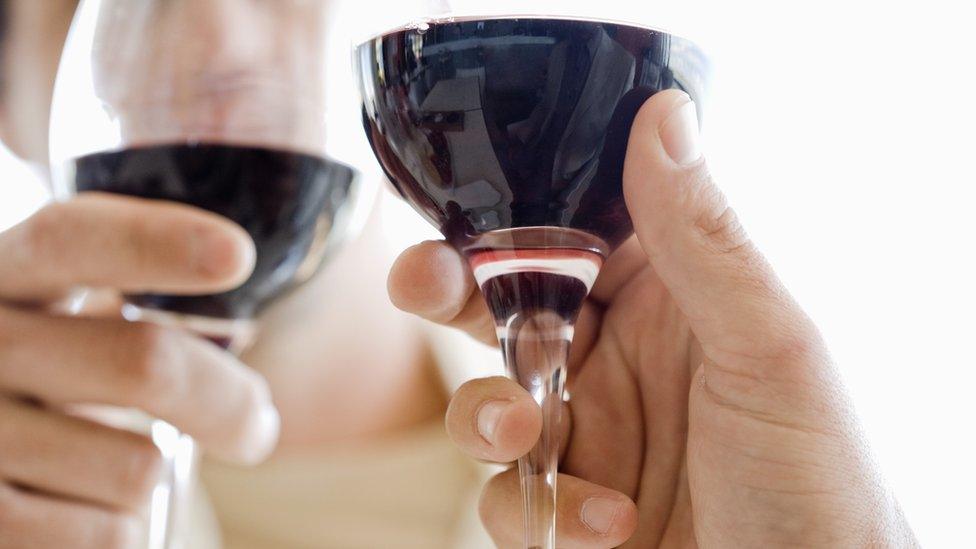
- Published5 December 2014
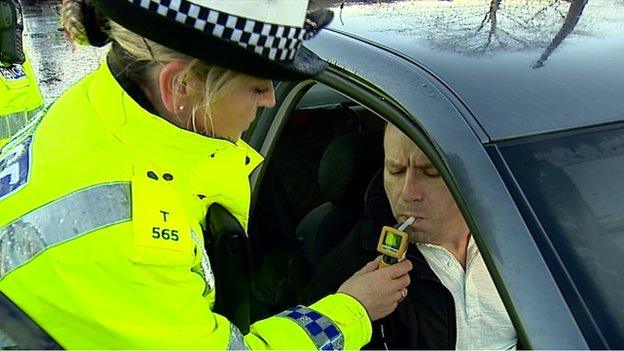
- Published29 May 2015

- Published4 December 2015

- Published4 December 2014
